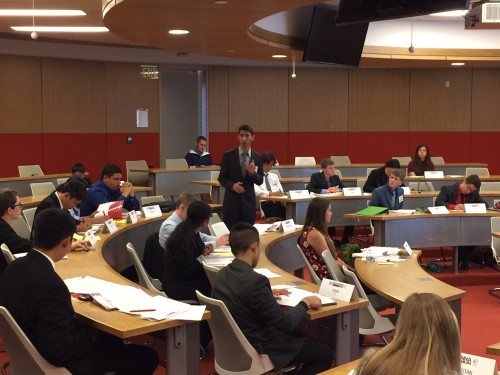
A delegate speaks at McKenna MUN
This was my first visit to a conference in my home circuit of Southern California in at least a year and my first visit to McKenna MUN, and it was immediately apparent why faculty advisors have positive feedback about this conference. At least two faculty advisors even pointed this out in comparison with several other newly established university-hosted high school conferences in the region which have struggled to gain a footing or some sort of reputation.
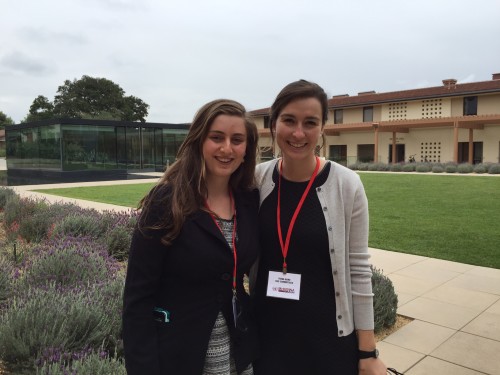
Secretary-General Isabel Wade and USG of Committees Fiona Bare at McKenna MUN
What has made McKenna MUN so successful in just four years? Here are nine reasons I could identify:
1. Start with a good foundation: Secretary-General Isabel Wade spoke about the enthusiasm of the very first Secretariat in laying a good foundation during the first conference, and that has given the conference momentum. Behind the scenes, Best Delegate actually corresponded with the first Secretariat and helped them with selecting the right date for the circuit and provided them with chair training foundations. The latter was pointed out by a McKenna officer when he introduced me at my Advisors Workshop.
2. Staff the conference at a private school ratio: McKenna MUN has grown to 550 delegates, but it utilizes a staff of 90 college volunteers. That’s about the same number of staff that UCLA has at 1,200 delegates and Berkeley has at 1,700 delegates. The private school-like 6:1 delegate-to-staff ratio gives the conference more capacity to run the conference and serve the students. Furthermore, the McKenna MUN Secretariat has made it a point to draw diverse staff that are not necessarily part of the Model UN team but may bring in different conference management skills or specialized substantive knowledge in committee.
3. Invest in the travel team quality: McKenna MUN has made it a key priority to invest in their MUN travel team, which has become one of the best teams in the world (won Best Small Delegation at WorldMUN) and the #1 team on the West Coast in most of the recent years. This fact was even marketed in flyers sent to schools to communicate the quality of their chairs’ experience. In comparison, many chairs at other university-hosted high school conferences nationwide get appointed based on their high school MUN experience but are not necessarily involved with their university’s MUN travel team.
4. Invest in the delegates’ knowledge: McKenna MUN does a great job being an on-campus conference by having professors speak in every committee! This is unheard of — I could not think of a conference in the US that has this. Most conferences held on university campuses do not even invite professors to speak in a single committee! On another note, McKenna MUN publishes a good delegate rules of procedure guide — their crisis rules of procedure section was the most clear I have found from any conference so far.
5. Connect the students with the campus clubs: McKenna MUN tries to coordinate its schedule with I-Fest, short for International Festival. This is a festival that takes place on campus outside of McKenna MUN. But it is a win-win for the students and the festival — the students get to experience different cultures and foods, and the festival gets more participants and gets an authentic way to showcase the Claremont McKenna college experience. I happened to hear about this when the Vice Chair of one of the committees, who is from Sweden, mentioned that she will be participating in I-Fest herself.
6. Invest in the faculty advisors: For the second year in a row, McKenna MUN has invited one of the Best Delegate co-founders to speak. This year, I did an Advisors Workshop, which is a sample from the Advisors Institute. Although I initially thought that I would not get a large audience due to the many experienced MUN faculty advisors in Southern California, I soon realized that almost every faculty advisor attending the workshop were those who run relatively new, small clubs that are often at a huge disadvantage compared to the experienced, large class-based programs. If we look beyond the big name teams, there is definitely a need for professional development among faculty advisors in Southern California.
7. Do active outreach: McKenna MUN is a bit further from the core Orange County and beach city MUN markets of Southern California, so the conference needed to build its own community of local participants. McKenna MUN has been doing that by doing active outreach to schools in their immediate area and in the Inland Empire, where Model UN is underrepresented. Growing the local market is the best way to ensure sustainable delegate attendance in future years.
8. Have beautiful facilities: McKenna MUN is blessed to have great facilities — their classrooms are perhaps some of the nicest among all the university-hosted conferences I have been in the nation. I was told that a new building will get completed soon, which will give them even more space to hold committees in these brand new, state-of-the-art college classrooms. Obviously this may not necessarily be the case at every other campus, but McKenna MUN has made good use of the facilities available to them.
9. Gain university support: The last element that McKenna MUN has done a good job with is gaining support from their university’s administration. Claremont McKenna College has been very understanding that funding the conference and funding the travel team will help increase their brand name locally and globally. The financial and administrative support gives McKenna MUN and the Claremont McKenna Model UN team a lot of potential for growth.
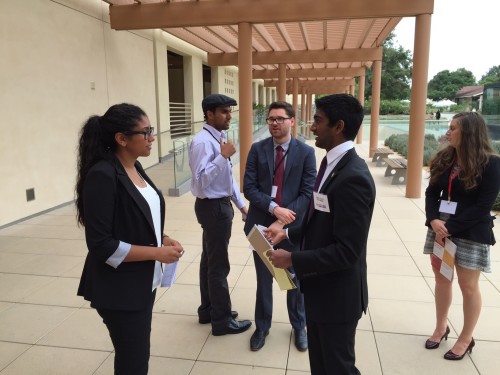
Delegates from two different cabinets negotiate in the JCC as a crisis director listens in
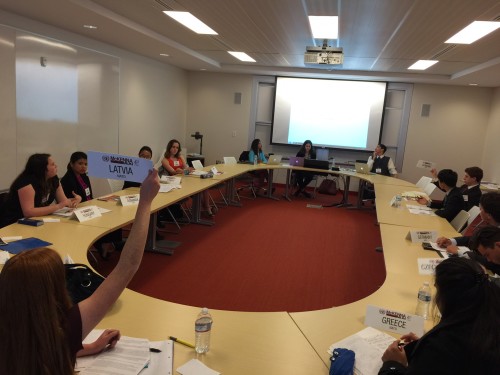
Latvia makes a motion in NATO
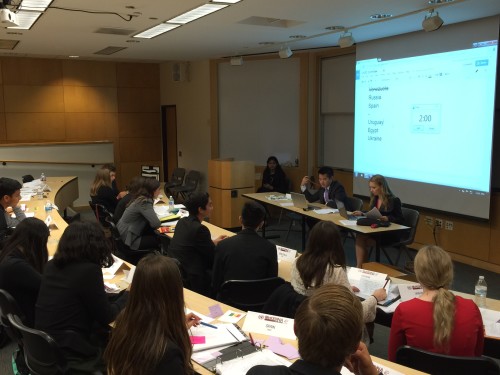
McKenna MUN takes place in nice college classrooms
McKenna MUN has laid a strong foundation for itself in the first four years of its existence. As the last remaining students from that first conference — the current seniors in this year’s conference leadership — graduate from college, hopefully the next generation will pick up right where they left off and continue to build this conference in both size and quality.


